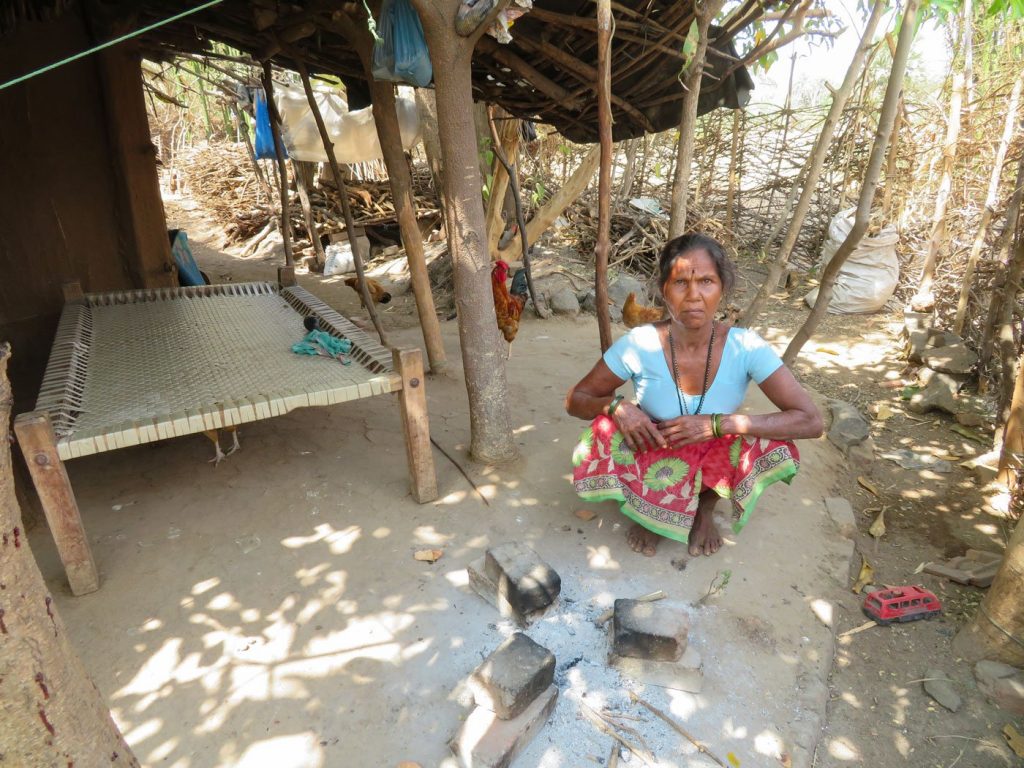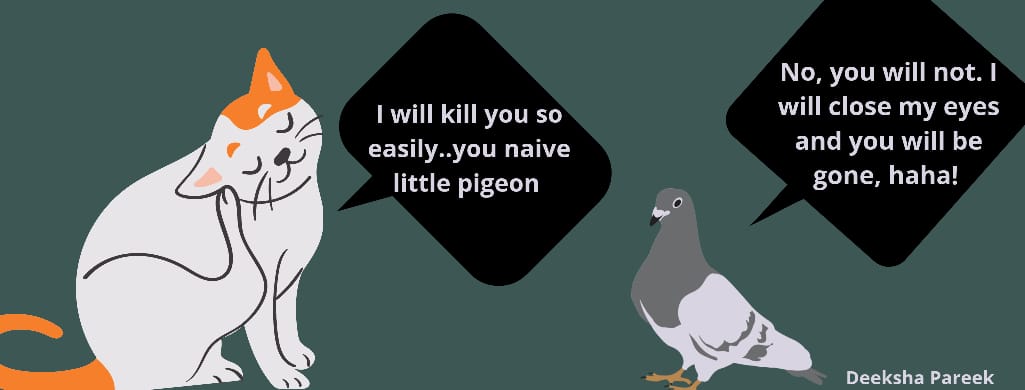An amalgamation of fascism and a deadly pandemic—how much more worse can it be? If I quote Hozier here, we are all ‘walking our days on a wire’ and it’s undoubtedly poignant and dreadful. The question amidst this is, “Can we make space for positive news in today’s world?” Before getting into it, I’d like to take a moment to define this news called ‘positive news’.
Any news that gives a platform to unheard voices, showcases stories of people fighting against the status quo and reports small wins in the form of Bills and Acts (only the non problematic ones) can mostly be seen as positive news. But what do we really get in the “positive” news section? It’s more often than not a digression, a cover up for the people in power and even worse, it is a tactic to further their propaganda which is just plain sadness and poignancy in the garb of ‘positive news’. If not this, it would be what is called ‘toxic positivity’ in the form of pestering the readers to “look at the brighter side”, “be positive” et cetera.
Well, if I again quote Hozier, “there’s no plan, there’s no kingdom to come.”
Any news that gives a platform to unheard voices, showcases stories of people fighting against the status quo and reports small wins in the form of Bills and Acts (only the non problematic ones) can mostly be seen as positive news. But what do we really get in the “positive” news section?
How Much Of “Positive” News Is Really Positive?
As mentioned earlier, what we really are getting is misery dressed like positivity in the form of positive news. To cite a few instances, an article was published in the Hindustan Times’ ‘good’ news section on how a fan walked 900 kilometres for 18 days to meet Akshay Kumar who asked the fan to “focus your time, energy and resources in bettering your life, that’ll make me the happiest.”
How ironic it is for an actor to see people bettering their lives, who did not even give trans people the platform to play their own role and rather hijacked the stage to misrepresent them, thus showcasing zero regards to lived experiences and real representation. Laxmmi Bomb featuring Kumar left no stone unturned to be the epitome of problematic cinema.
The Hindustan Times did publish an article regarding this as well; the only problem is, it exhibits the ‘difficulties’ dear Kumar faced while donning a saree for the role. We are served this positivism on a fancy plate which leaves some of us wondering about the reporting of difficulties a trans person faces in this patriarchal and overtly transphobic society.

Another article that was published in the Times of India “good” news section on 16 June, 2020 was a celebration of the timely control of the coronavirus as alleged by Narendra Modi. The current hideous situation is a living proof of how it was a digression from the government’s inability to take correct measures since the very beginning to better control the spread. The transient relief it must have rendered to the people is of no use today. There is a huge possibility that it did more harm than good, even if the whole digression is put aside because some people might have stopped taking the necessary preventive measures as soon as they read the “good” news.
Privilege And “Positivity”
“Good” news like any other thing does not and cannot exist in a vacuum. Our privilege renders us the freedom to not look beyond the ‘good’ that’s being put forth. Anything that is presented incorporates two things:
a) What it is talking about and,
b) What it is not talking about, that is, avoiding to talk about.
Most of these “good” news articles talk about the unreal rosy picture and avoid the real truth.
These “good” news sections take up the space for a real piece of news to not ‘distress’ its privileged upper class readership. It’s not their basic human rights which are being tossed aside and it’s extremely convenient to choose and take a vacation or an off from their ‘activism’. When a news medium like the Times of India whose readership is essentially the bourgeois English speaking section of the country decides to add a “good” news section, it becomes extremely pivotal to be conscious about which section of society it is bringing this goodness to.

The marginalised communities face a major backlash when their truth, which is bitter and raw, is brushed aside to suit the needs of some. The problems in Laxmmi Bomb are not just limited to cinematic representation, but further go on to pose real life threats to a person belonging to the trans community in the form of stigmatising their very identity.
Trinetra Haldar Gummaraju, a trans woman who is a queer and trans right activist, expressed her anger and dejection through her video where she says, “It (transphobia perpetrated via major media) makes me want to puke. Do you have any idea what it takes to bounce back from the kind of dehumanisation, from the kind of insult, from the discrimination that we face on a daily basis?” Imagine the kind of awareness it would have created, had there been an article calling out the actor through an interview of a person belonging to the trans community as opposed to the “good” news article that painted Kumar in a positive light.
Good/uplifting/inspirational news is based on reality and takes into account all the various intersections possible. A right wing activist critiqued Arundhati Roy in a conference held at the Brunei Gallery for her constant criticism of India and asked her to have a “wholesome” view of the country to which Roy replied,
“The most remarkable and wonderful thing about India is the fact that we have the most remarkable resistance movements. We have the poorest people in the world resisting the richest corporations putting their bodies on the line to ask the world the most profound question the world can be asked, which is to redefine the meaning of civilisation, to redefine the meaning of happiness, to redefine the meaning of modernity.”
The real good news is that some people are daily fighting for a change, criticising the status quo, spreading awareness and are passing the mic to where it belongs and amplifying the unheard voices.
These “good” news sections take up the space for a real piece of news to not ‘distress’ its privileged upper class readership. It’s not their basic human rights which are being tossed aside and it’s extremely convenient to choose and take a vacation or an off from their ‘activism’.
Also read: The Need For A More Humanitarian News Reporting During A Pandemic
The Forgotten Role Of Journalism
“The purpose of journalism is thus to provide citizens with the information they need to make the best possible decisions about their lives, their communities, their societies, and their governments,” writes the American Press Institute. The present news medium is no longer a mirror of the society, but is rather a child painter who paints and furnishes reality as they see fit. The word ‘reality’ has lost all meanings and is polarised for the entertainment and ‘positivity’ of a few.
Since this has been a long argument on positive news, I do want to talk about real positive news as well, that is, the real role purpose and role of journalism. An organisation called People’s Archive of Rural India (PARI) has taken the moral responsibility to “make you and me and others respect the labour of ordinary people” says the founder P. Sainath. This is what is real, “a living journal and an archive” and hence is good because in the longer run, this is what is going to bring about a wave of change in the positive direction.
When an organisation like PARI publishes an article that talks about the long breakless walk of 104 kilometers of the brick-kiln workers and Hira (one of the workers) says, “Our legs don’t hurt because we anyway walk long distances due to the irregular ST (State Transport) schedule. But not earning anything is more painful.” It comes from a place of reality and literally mirrors the society. This really should make one wonder what’s really good to be put in the news, if we look at the bigger picture? The long walk for Kumar or the long normal walks of the uncountable marginalised people who toil to make both the ends meet.
If you ask me, it’s definitely the latter, for it might lead to some affirmative action and change through the awareness it creates, which makes it good in the real sense of the word.

Similarly, Main Media is a channel started by Tanzil Asif who when asked by News18 about his intent behind Main Media said, “There were many leaders who were MLAs (Member(s) of the Legislative Assembly) for three or five terms, and when asked about their contribution, they would blame the opposition, state government or even the central government. But my main concern was, what were they doing?” They essentially focus on the Bihar news and make it their main concern for the real news to reach the public putting it again under the category of good and positive news.
Do Not Be The Pigeon
Thus, to answer the main question that this article poses, “Can we make space for positive news in today’s world?”
YES, we can and we should, but only when we consciously keep in mind what this positive news is.
Does it challenge the status quo?
Does it give a platform to the marginalised?
Is it really the mirror of our society?
Does it incorporate all the intersections that are involved?
Is there a possibility that it is acting as a cover up or is trying to further the propaganda of people in power?
These are some of the few questions we can ask ourselves when we now find ourselves aimlessly browsing in the “good” news section.

Also read: Should Feminists Be Worried About “Fake News” Circulation?
I was told a story of a pigeon in my childhood who closed its eyes, when it saw a cat, hoping that it’d be saved because it cannot see the cat anymore. The current “good” news is closing our eyes to make us ignorant to the large cat in the form of all kinds of systems of oppression that exist. It’s high time we stop being the pigeon and open our eyes and make space for real positive and good news that’s beneficial in the long run.




